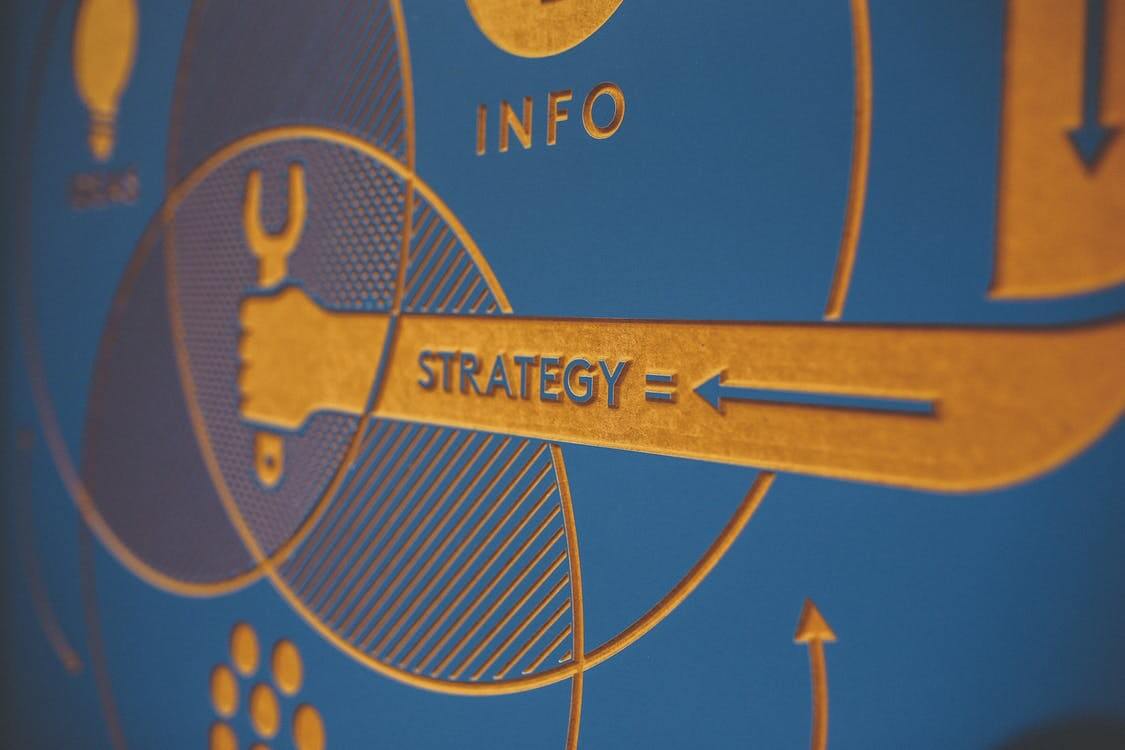A couple of years back, many businesses couldn’t visualize artificial intelligence, voice search engine optimization, or data-driven marketing for business.
Yet here we are; in the digital age, working with all kinds of innovative digital marketing tactics to reach more B2B customers and grow our revenue.
It’s a good thing really because innovation helps free sales and marketing teams from mundane tasks while still delivering top-quality service to customers. Happy customers translate to a larger market share, making it a win-win for all.
If you want to be that future-focused, customer-centric company, here are five strategies you should consider.
1. AI-Powered Marketing
This fast-evolving technology is changing the way brands do business.
AI offers B2Bs the opportunity to deliver highly personalized experiences, improving efficiency, effectiveness, and customer satisfaction. This helps blur the line between online and offline experiences.
By leveraging customer data, AI-powered marketing segments audiences appropriately and enables you to choose and send relevant messages to your audiences.
Here are some ways AI can make a difference in marketing operations:
Sourcing for High-Quality Leads
While marketers can source leads from websites, online platforms, CRM, and marketing campaigns, these methods are not foolproof.
They don’t take into account the interests and spending nature of leads limiting the effectiveness of marketing campaigns.
With AI’s vast coverage, it can capture more data and classify it using predefined attributes to improve your prospecting choices and increase conversion rates.
Simplifying SEO
If you’re like most marketers, you probably have a love-hate relationship with SEO.
You resent the tedious task of identifying keywords, summarising and tagging keywords, creating backlinks, and analyzing market trends, etc. But you’re happy when the efforts generate leads.
By interpreting data patterns more accurately and efficiently, AI can improve SEO processes and deliver high-quality information.
Personalizing B2B Marketing
As consumers become more selective about the solutions they want, AI-driven marketing will help discern preferences and desires to provide highly personalized conversations.
Rather than targeting a particular niche and generalizing solutions based on common pain points, AI will focus on individual B2B customers.
AI will analyze the potential customers’ interests and needs, then customize solutions that will generate more favorable responses.
AI will also analyze historical data to establish the best time for sending marketing campaigns for maximum reach and improved opening rates.
2. Visual Search Marketing
Imagine walking into an office and seeing a product you would love to have in your own office.
Now, for whatever reason, you don’t ask about it, but later in the day, try to Google it.
Where do you start?
Who makes that product? How do you even go about describing it?
Well, what if you had an image of the product that you could upload in your Google search? You would be guaranteed better results.
Say hello to visual search marketing.
This digital marketing tactic helps searchers find products based on images—think photos, screenshots, and internet images.
When you upload an image on Google’s image search option, it brings up all the websites using that image.
In the B2B arena, visual search makes it easy for buyers to find and buy your products.
They don’t have to think about search terms or descriptions, just upload an image and they can find the seller.
How can you optimize this strategy?
- Upload high-quality images that allow searchers to view them from different angles
- Name all images accurately and ensure the title and alt-tags contain the proper keywords. It will help search engines understand and index the content properly.
- Add the images to your sitemap. This provides helpful information about the images to search engine crawlers and increases their chances of appearing in search results.
- Optimize image size and file format to ensure the page loads quickly. Slow loading times can cause prospective buyers to leave.
3. Visual Content Marketing
With visual content marketing, you use visual content to reach target audiences, guide leads down the funnel, and promote sales.
Brands that use visually interesting ways to depict their businesses maximize reach and speak to their audiences more effectively.
How do you incorporate visual content marketing into your business?
Here are examples of visual content you can use for the different stages of the buyer journey:
- Awareness stage: when prospects realize they have problems that need remedying, they research solutions. A short homepage video introducing your brand and solutions is excellent at this point.
- Consideration stage: prospects have narrowed down their searches to a few solutions. They are now looking for an in-depth understanding of your capabilities. Explainer videos that break down complex ideas, product videos showing the solutions in action, and how-to videos will provide the information prospects seek.
- Decision stage: the prospects are ready to buy, but probably need one final incentive to choose you over the competition. Webinars, winning case studies, and testimonial videos that show your solutions in good light may help convince them.
4. Cold Calling
Amid all the tech and futuristic innovations that make selling more efficient, the cold calling strategy facilitates human interactions.
These business conversations grant you the opportunity to introduce your brand and offerings and receive feedback from the listener.
With proper research, cold calling becomes a productive strategy that may yield good returns for your business.
Here’s how to get the best out of cold calling
- Research your prospects. Track down key information from their company’s website, social platforms, and your CRM in case they’ve had past engagements with you. Identify pain points and tailor messages around them.
- Create an outline of the things you want to say. Start with a strong opening line that revolves around a pain point so you can grab their attention. You have around 10 seconds to prove you’re worth listening to.
- Conversations should be two-way. Jot down open-ended questions—’what,’ ‘where,’ ‘how’ etc to give the prospect the opportunity to chip into the conversation.
- Be fully present with your listener. Block 1-2 hours for cold calling and minimize disruptions during this time.
- Practice cold calling. Rehearse with colleagues and let them throw different angles at you to help you get a feel of real-life conversations.
5. User-Generated Content
User-generated content (UGC) has long been in the B2C domain but is now making inroads in the B2B space.
With good reason to trust.
UGC revolves around content created by “real-life” contributors with no imposition from your brand.
It differs from influencer marketing in that you’re not dealing with celebrities or well-known personalities, but everyday businesses that use your solutions.
92 percent of consumers world over indicate that they trust peer recommendation over ads. User-generated content comes with better credibility and is likely to sway more prospects your way.
Here’s how businesses can leverage UGC:
- Come up with user-generated FAQs and have real users answer the questions. With B2B buyers being self researchers, they will place more value on the answers provided by their peers.
- Get video testimonials from happy customers. Their testimony can have a tremendous impact on prospects seeking solutions similar to yours.
- Promote reviews customers leave on third-party sites like Yelp etc. Capturing and re-promoting the best reviews on your company website and across social platforms can do wonders for your credibility and improve sales. But first, check user permissions and the third-party site’s policies on copyrighted materials.










